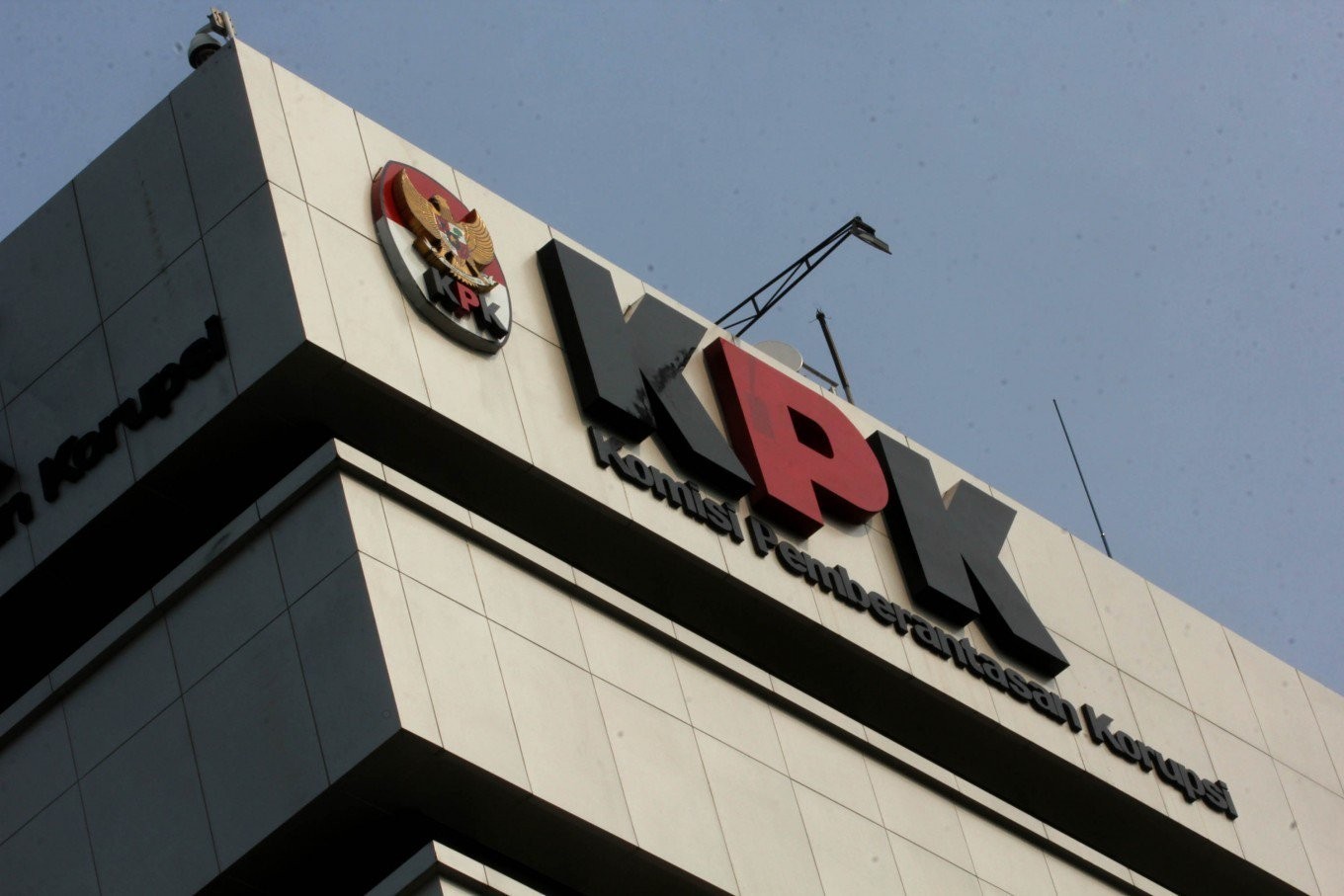Popular Reads
Top Results
Can't find what you're looking for?
View all search resultsPopular Reads
Top Results
Can't find what you're looking for?
View all search resultsNew regulation details how KPK can take over graft cases from police, AGO
A newly signed presidential regulation only allows the Corruption Eradication Commission (KPK) to take over a corruption case from the police or the Attorney General's Office (AGO) if an assessment of an ongoing investigation is carried out.
Change text size
Gift Premium Articles
to Anyone
P
resident Joko “Jokowi” Widodo has signed a presidential regulation (Perpres) on corruption case investigation supervision, which details the authority of the Corruption Eradication Commission (KPK) in taking over graft cases from other law enforcement bodies.
Signed on Oct. 20, Presidential Regulation No. 102/2020 stipulates provisions related to the antigraft body’s supervision of graft investigations by the National Police and the Attorney General’s Office’s (AGO).
Article 9 of the regulation allows the KPK to take over a corruption case previously handled by the police or AGO, provided a case investigation assessment is completed. The case takeover process – which includes the handover of suspects and evidence – should take no longer than 14 days, according to the regulation.
The decision to transfer a graft investigation to the KPK should be done only after the antigraft body and other law enforcers conduct a case reconstruction to assess the conditions of an ongoing investigation.
Read also: KPK to raise concern over 'leniency' of Supreme Court in graft convicts' case reviews
According to the 2019 KPK Law, the antigraft body is allowed to take over graft cases from other law enforcers if it finds the investigation is delayed without any clear reasons. The KPK can also step into a graft case if other parties intervene in the investigation, or if there are indications of a cover-up.
Similar provisions were stipulated in the now-defunct Law No. 30/2002 on the KPK. However, the new Perpres now outlines a technical guideline on the KPK’s supervision authority.
KPK acting spokesperson Ali Fikri said the commission welcomed the new regulation, as it was mandated in the 2019 KPK Law.
“We hope that the coordination and supervision with other law enforcement officials in eradicating corruption will be stronger in the future,” Ali said.










